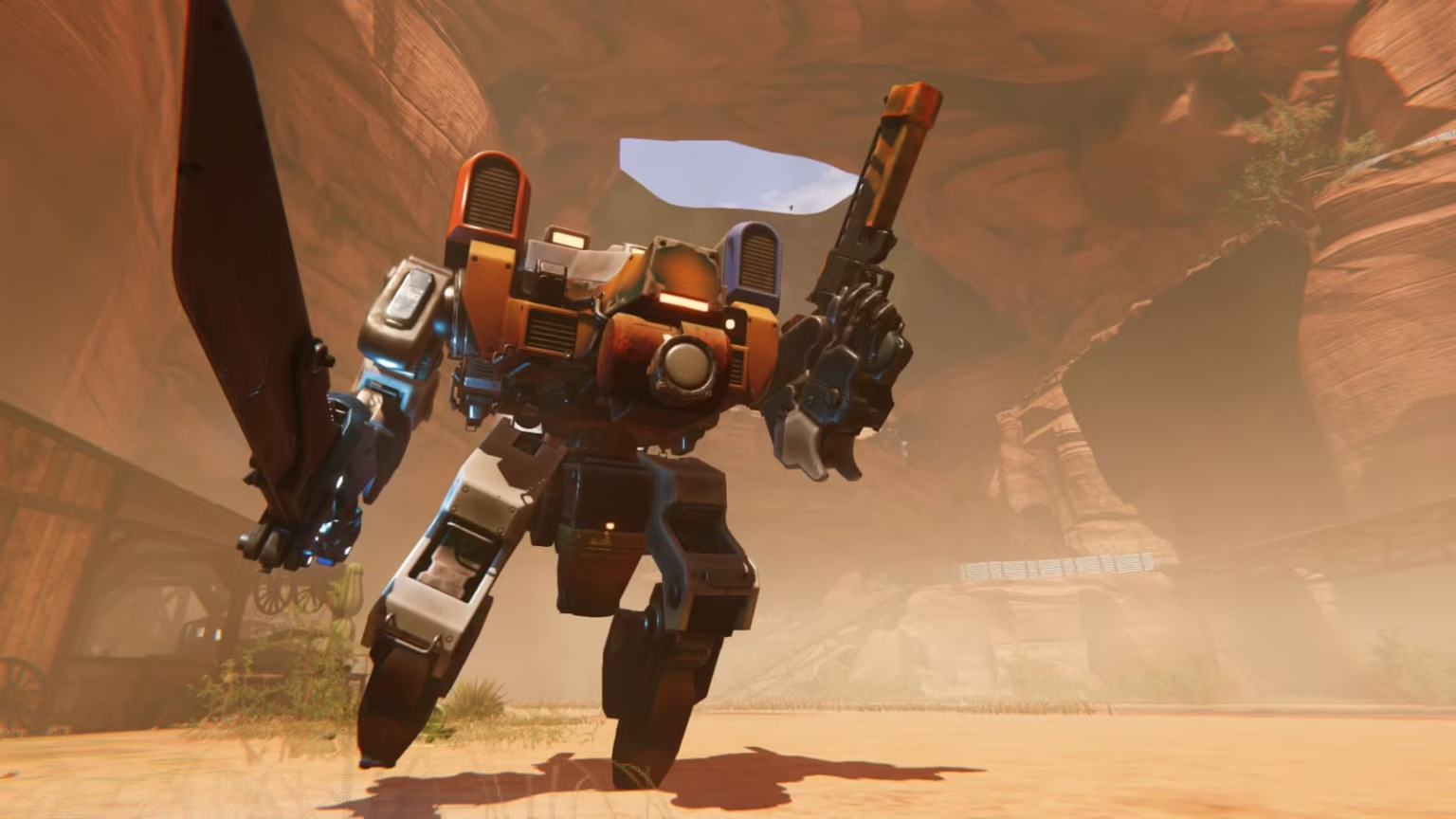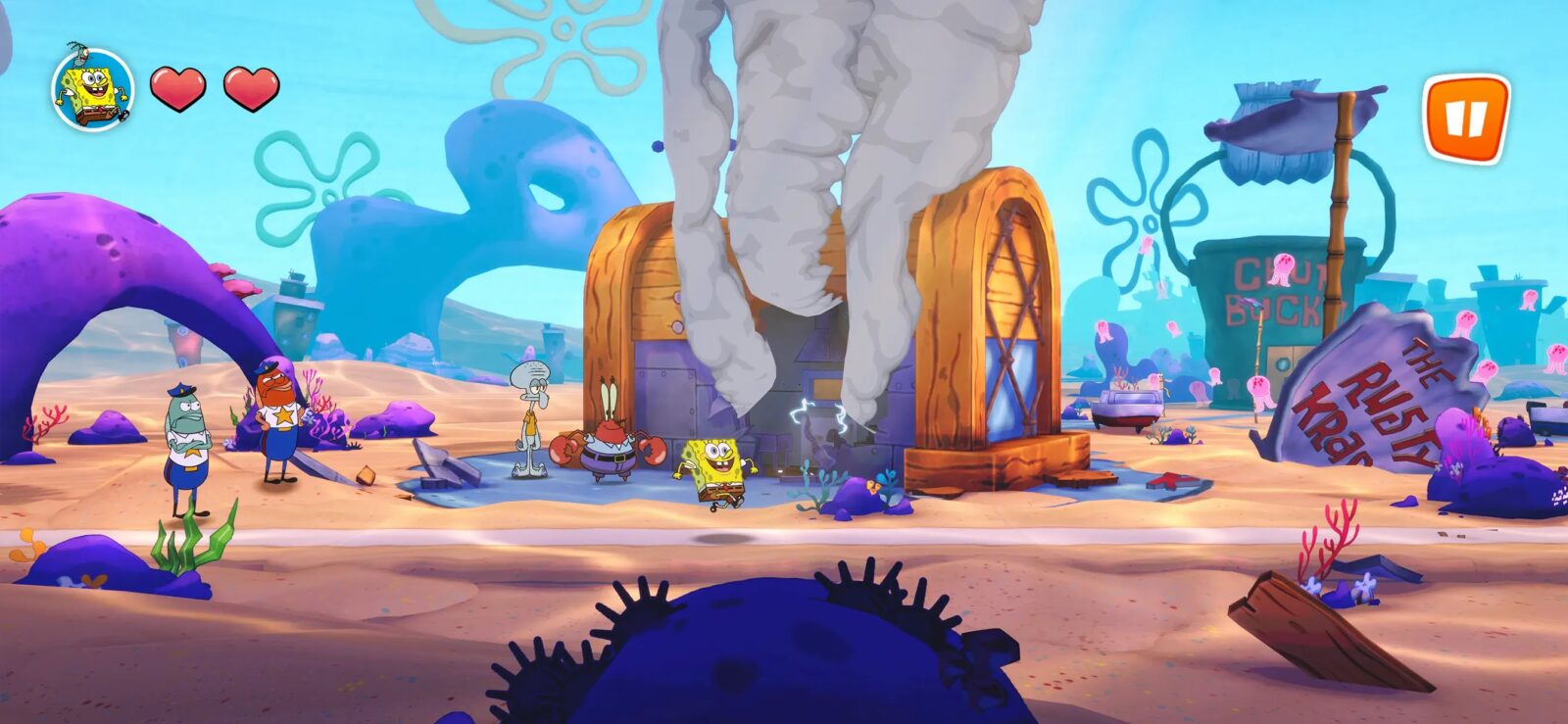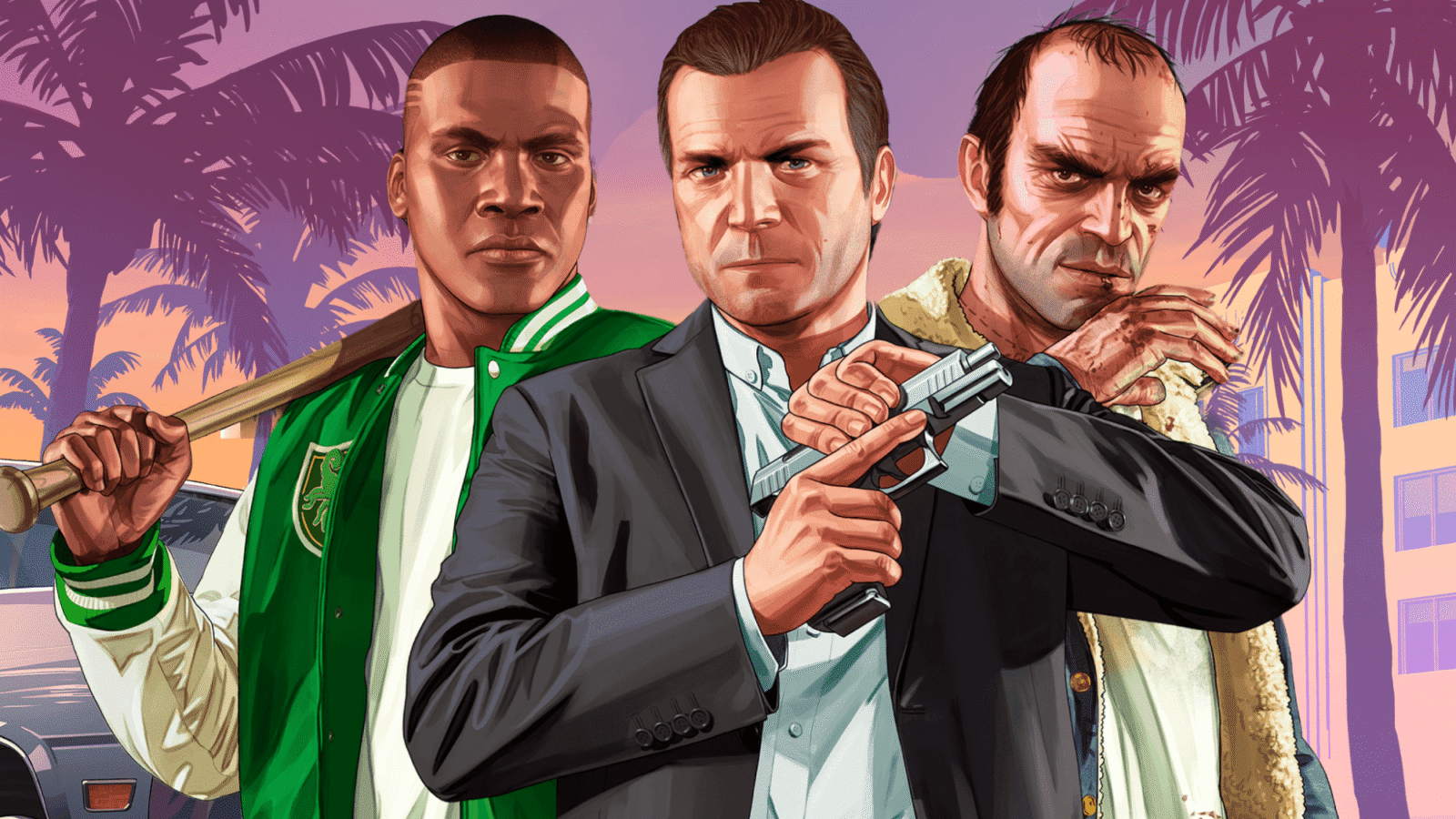Every now and then, a game quietly lands on Game Pass that feels like it’s doing something different—not by reinventing a genre, but by stitching together several familiar ones in a way that somehow works. Bounty Star: The Morose Tale of Graveyard Clem, developed by Dinogod and published by Annapurna Interactive, is one such title. On paper, it’s a strange mix: part mecha combat sim, part farming game, and part redemption story set in a dusty retro-futuristic Western. In execution, it’s a surprisingly grounded and affecting experience.
The story follows Clementine “Clem” McKinney, a former soldier turned bounty hunter trying to rebuild her life after years of isolation. She lives on a barren patch of desert land, tending to a small farm and a hangar that doubles as her home base. The hangar, with its patched-up walls and humming machinery, is where she maintains her raptor—a sturdy mecha used to track and capture targets. Between missions, Clem cultivates her farm, cooks meals that grant buffs, and repairs equipment. These slower domestic moments contrast sharply with the harsh, mechanical rhythm of her bounty hunts.
Gameplay splits its attention across several layers. The day progresses in segments, allowing a limited number of actions before nightfall, echoing the time management systems found in classic farming sims. Missions, on the other hand, shift to tactical combat, with players piloting Clem’s raptor through tense, weighty encounters that emphasize positioning and restraint over flashy maneuvers. Managing the machine’s heat levels, ammo, and integrity adds a layer of tension that suits the game’s unforgiving desert tone.
What stands out most, though, isn’t the farming or even the mecha design—it’s Clem herself. She’s a layered protagonist: self-deprecating, sharp, and burdened by guilt. Through quiet scenes of conversation or introspection, the game reveals how her emotional scars parallel the raptor she pilots—both powerful but damaged, both held together by effort and necessity. The symbolism isn’t subtle, but it’s handled with sincerity, turning what could have been a gimmick-laden mashup into a thoughtful meditation on identity and survival.
Dinogod’s approach to genre blending could easily have collapsed under its own ambition. Instead, Bounty Star finds coherence in contrast, using its mix of farming, crafting, and mech combat to tell a story about repair—of land, of machinery, and of self. It’s not a game about conquest or spectacle but about redemption through persistence.
Available now on Game Pass, Bounty Star offers an experience that’s slower and more reflective than most action games, yet deeply satisfying. It’s a reminder that sometimes the most unexpected combinations—steel and soil, war and peace—can create the most resonant worlds.







